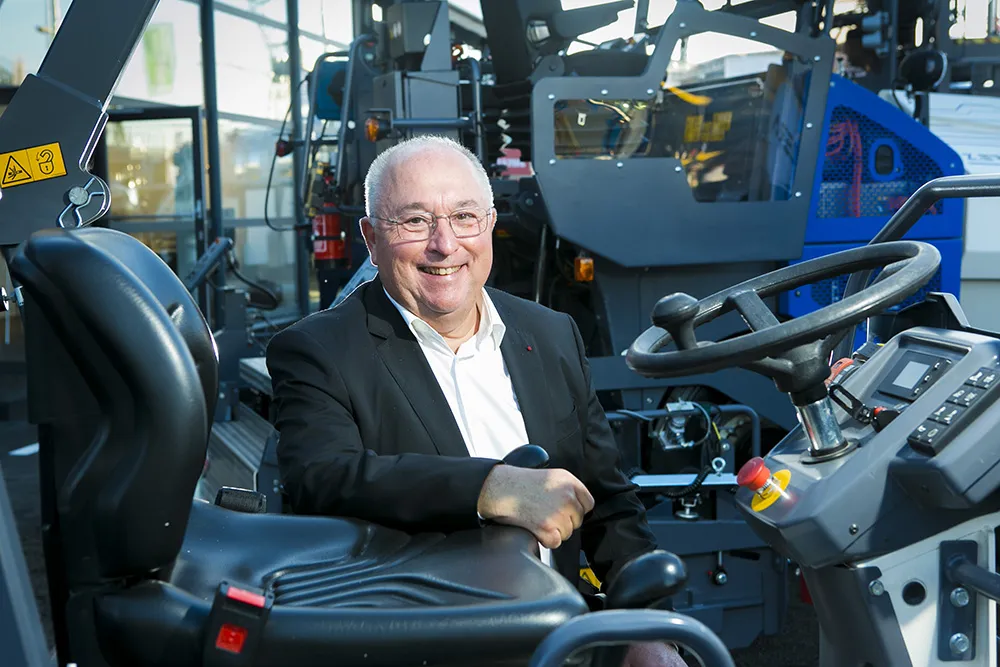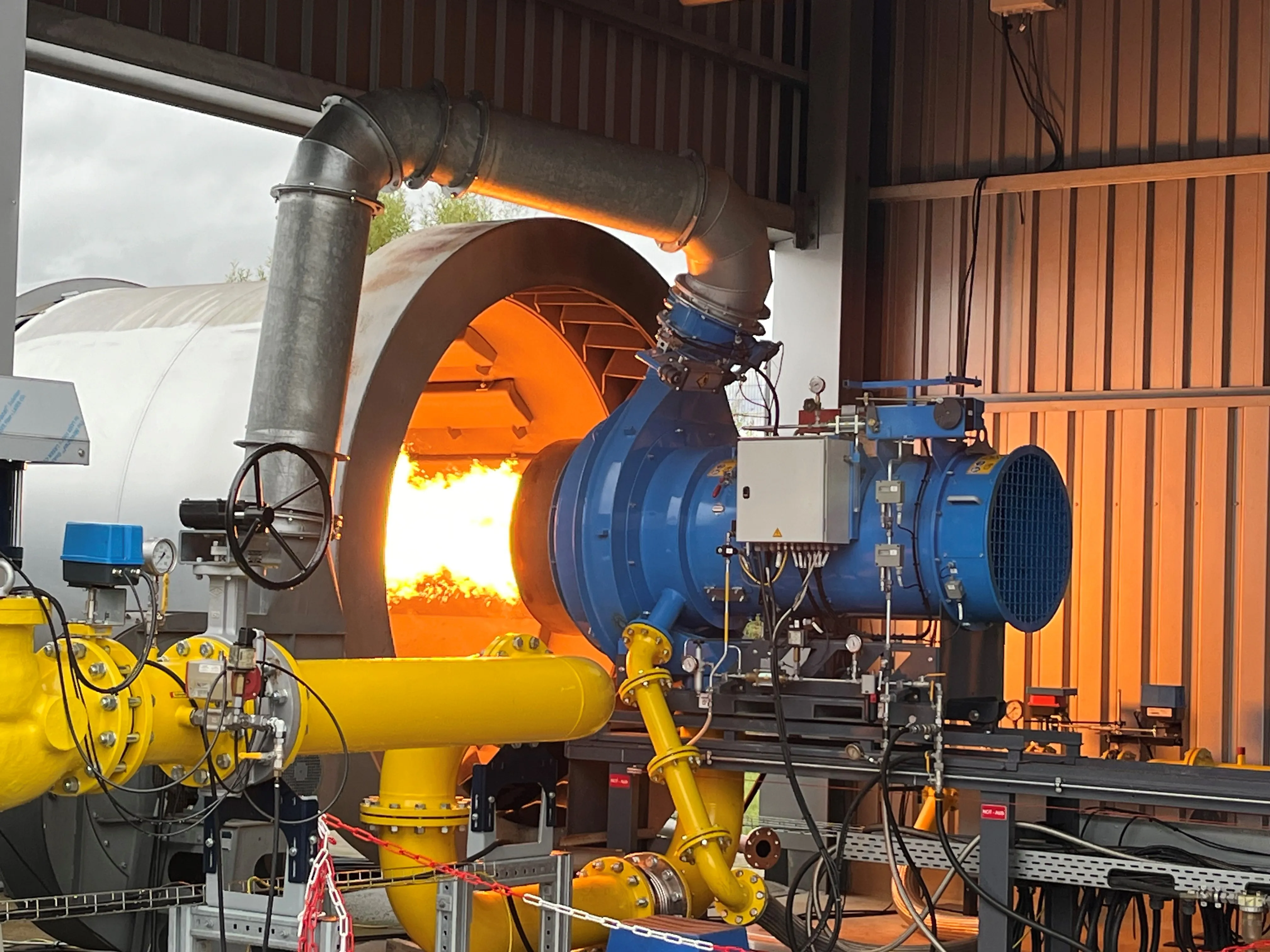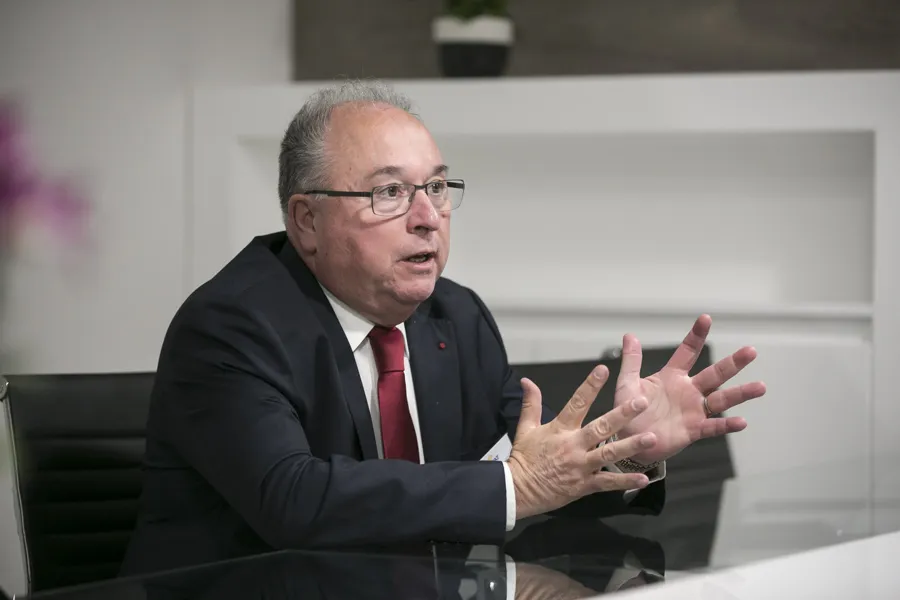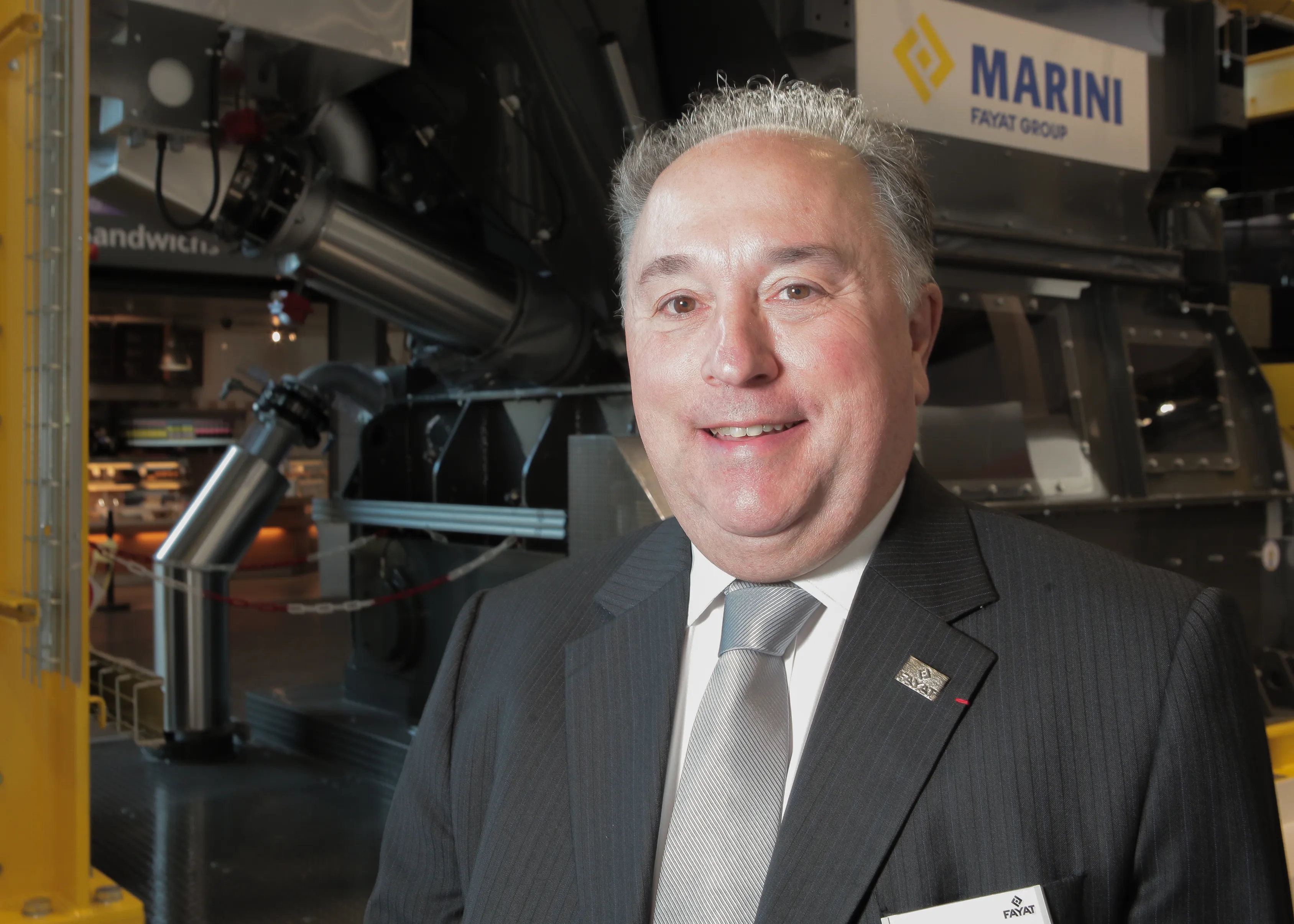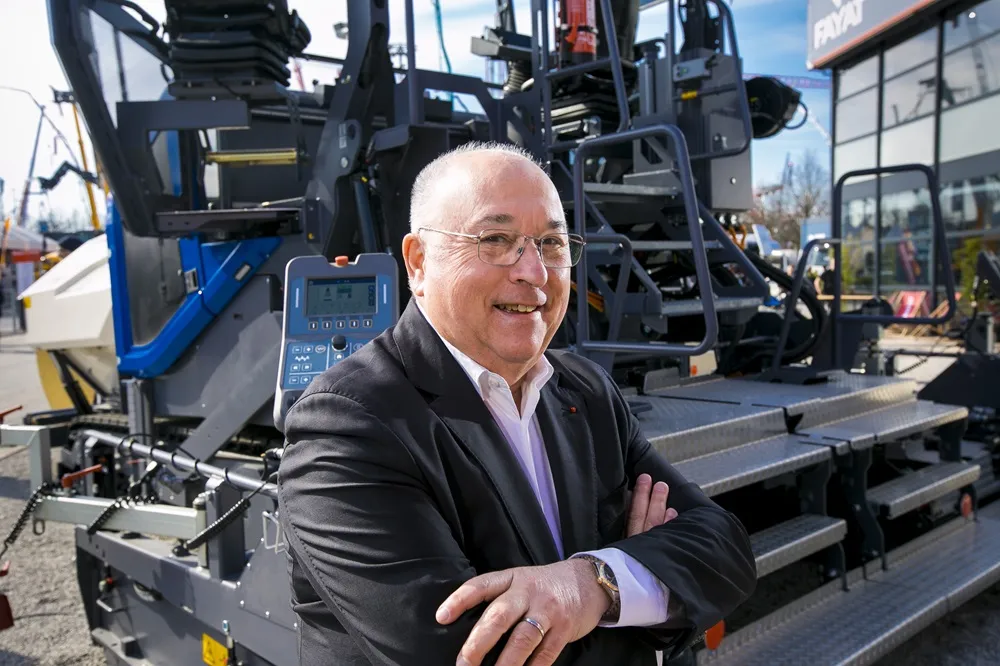
Jean-Claude Fayat is president of the FAYAT Group and says that the firm occupies an unusual position in the construction sector, as both contractor and manufacturer. He explained that this gives the firm a different perspective to its competitors in both segments, “We have a unique balance between contracting and industry.”
Rather than being a general contractor or manufacturer, the FAYAT group occupies specialist segments and he said, “We try to be the best in niche markets.”
Being a family-owned firm, the FAYAT group is also able to respond more quickly to changes in market demand than companies in public ownership. The FAYAT Group is a specialist in road equipment and building roads but also has a significant presence in the road machinery sector. And he said, “In total we have 25 factories around the world.”
The FAYAT Group is focussed on the European market, although it is also growing its presence in the North American market, following on from its purchase of ADM in 2024.
Looking to the future, the firm has been investing in new technologies and the FAYAT Group is now offering a number of electric machines in its portfolio. But Fayat said that these advanced electric machines are still a niche product, with a low take up, “For me it’s still slow. The sales are still low.”
The firm has developed electric machines because it has to be ready for the demand when it comes but Fayat said that the high cost of the units still puts off many customers who still stick to conventional diesel equipment for the most part. This will change in time and he said, “When it comes down to 1.5x the cost of a diesel machine, electric models will sell strongly.”
Fayat said that the Group will benefit from the knowledge and experience gained in China from developing and using electric machines. Much of this wealth of experience is coming from China’s automotive sector, which has been encouraged to develop electric vehicles by the Chinese Government. China’s automotive sector has benefited from some subsidies for electric vehicle R&D projects while customers have also had subsidies to encourage them to buy EVs in the past. The Mass manufacturing of batteries and electric drives as well as the crossover of this technology into the construction machinery sector will help reduce costs and make electric construction machines more attractive to customers in the future.
Other future fuels also hold promise, particularly HVO or synthetic fuels. With regard to the use of hydrogen as a fuel in the construction industry, Fayat believes this is still some years away though. He said, “We are not ready from a logistics point of view. Probably it will come and be part of the solution but it has to be green hydrogen.”
The company has been working on hydrogen burners for its asphalt plants but Fayat believes it will be some time before market demand picks up for this technology. He said, “We have to be ready and we don’t know when it will be.”
However, he added that it is important for the firm to invest in hydrogen technology as it would cost far more if the company comes to the market too late.
Much closer will be increased demand in industry for warm asphalt, which is a technology Fayat thinks will be of major benefit for road construction. He said, “I believe in this. It’s economic because it saves money. It reduces emissions and we have the technology.”
Utilising warm asphalt effectively does involve improvements in logistics to ensure that materials reach sites on time, but Fayat thinks that the rewards will be substantial for those contractors adapting their processes and making the move. In 2022 25% of the asphalt used in France was warm asphalt but Fayat see that this will increase rapidly and become the dominant material used for road construction in France by 2030, as well as in much of Europe. For France, IDRRIM's Note 46 of February 2021 states that road construction players in France are committed to producing 80% of running asphalt mixes at less than 150°C by 2030.
Similarly, the use of RAP will continue to increase. He said, “15 years ago recycling was minimal. Storing RAP used to be costly so it wasn’t used. But now firms use RAP because it saves money.”
Looking ahead, Fayat is uncertain how the construction market will develop during the coming 12 months, with the political climate adding to market instability. He added, “You try to see what happened in the past. We have to be ready and we have to flexible.”


